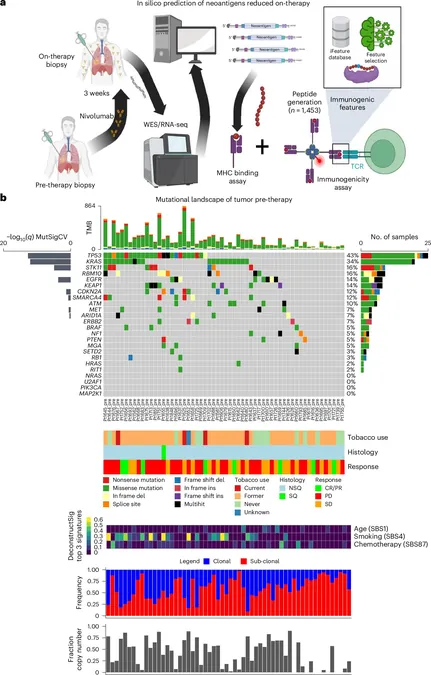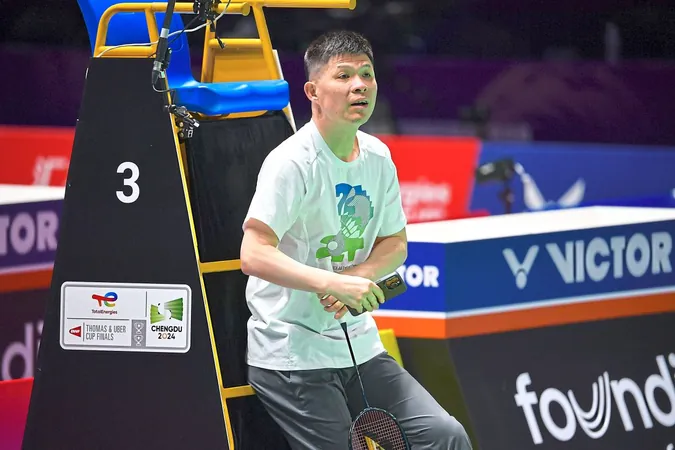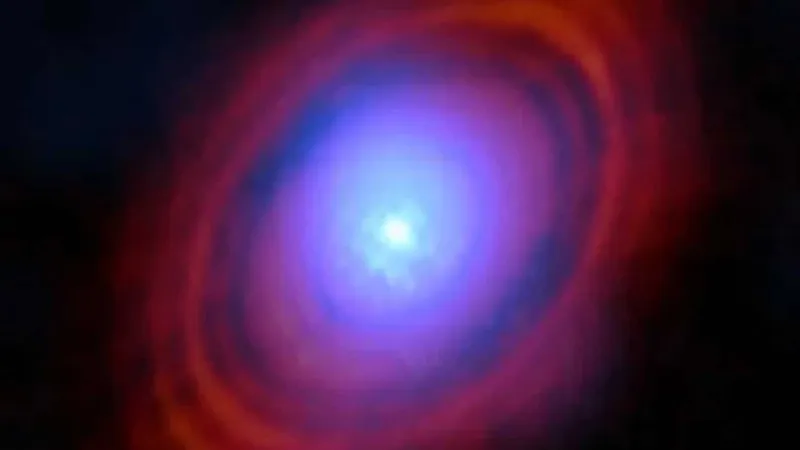
Breakthrough Research Reveals How Immune Cells Respond to Cancer Mutations During Immunotherapy
2024-10-01
Groundbreaking Study Unveiled
In a groundbreaking study led by Cleveland Clinic and Bristol Myers Squibb, researchers have unveiled the first comprehensive atlas detailing how immune cells react to mutations in tumors during cancer immunotherapy. This extensive research effort, spanning eight years and recently published in Nature Medicine, provides a significant insight into the dynamic interactions between the immune system and tumor cells when patients undergo immune checkpoint therapy.
Focus on Neoantigens
The study particularly focuses on neoantigens—small peptides generated by mutated cancer cells that serve as vital indicators for the immune system, signaling that these cells are foreign and should be targeted. Dr. Timothy Chan, the lead investigator and Chair of Cleveland Clinic's Global Center for Immunotherapy, explained, "Our research uniquely sampled patient tumors both before and shortly after the initiation of immunotherapy to understand how immune recognition and tumor architecture are influenced."
Complex Interplay Between Immune Cells and Tumor Cells
Cancer progresses as a complex interplay between immune cells and tumor cells. Effective immunotherapy requires enhancing the immune response to eradicate cancer. However, as Dr. Chan noted, meaningful human data has been rare in this field.
CheckMate-153 Trial Insights
Central to this study was the CheckMate-153 trial, coordinated by Bristol Myers Squibb, from which Dr. Chan's team drew critical insights. By sampling tumors before treatment and three weeks afterward, researchers pinpointed how neoantigens facilitate the immune response to nivolumab, a widely used immunotherapy drug. Through meticulous sequencing of the tumor samples, they identified specific mutations that give rise to these neoantigens.
Challenges in Neoantigen Prediction
While it is believed that neoantigens are essential for immune recognition of tumors, their accurate prediction has been a challenge due to limited data. To address this shortcoming, the research team conducted the largest neoantigen screening to date, refining their predictions and tracking the immune response over time through longitudinal blood draws.
Striking Results
Results showed a striking trend: patients who responded well to nivolumab exhibited a rapid decline of clonal neoantigens within three weeks of treatment. Conversely, those whose tumors didn’t meet remission criteria still demonstrated an immune response, although it was directed towards smaller sub-clonal populations. This finding challenges the previous belief that non-responders couldn’t activate an immune response; instead, it suggests that while their immune systems are engaged, the response isn't potent enough to eliminate all tumor variants.
Enhancing Predictive Accuracy with Machine Learning
Furthermore, the current neoantigen prediction tools primarily depend on HLA-binding properties and often overlook an essential aspect: T cell recognition. To enhance predictive accuracy, Dr. Tyler Alban and his team utilized machine learning to analyze the new screening data, identifying novel features in cancer-derived neoantigens that may impact immunogenicity.
Immune Response Complexity
Dr. Alban emphasized the complexity of the immune response, stating, "We observed a whole ecosystem of immune cells, with various T cells responding to different neoantigens. This interaction continuously reshapes the tumor's clonal structure." Their findings suggest that an effective immune response necessitates multiple T cell engagements with various cancer-associated features—not just a singular genetic mutation.
Future Research and Collaborations
As the team synthesizes their discoveries into future research, Dr. Chan remarked on the importance of their findings, likening the challenge of understanding immune responses to a "holy grail" for immunotherapy researchers: discovering why our bodies respond to certain mutations while ignoring others.
Collaboration with IBM
In an exciting twist, the researchers are also collaborating with IBM through the Cleveland Clinic-IBM Discovery Accelerator to develop advanced artificial intelligence models aimed at identifying novel therapeutic molecules and cancer vaccine candidates. This innovative approach could pave the way for next-generation treatments that are more effective in combating cancer.
Transformative Implications for Cancer Treatment
As this research progresses, the implications for cancer treatment and immunotherapy could be transformative, potentially offering hope to patients facing difficult battles against cancer. Stay tuned for more updates on this pivotal research!


 Brasil (PT)
Brasil (PT)
 Canada (EN)
Canada (EN)
 Chile (ES)
Chile (ES)
 España (ES)
España (ES)
 France (FR)
France (FR)
 Hong Kong (EN)
Hong Kong (EN)
 Italia (IT)
Italia (IT)
 日本 (JA)
日本 (JA)
 Magyarország (HU)
Magyarország (HU)
 Norge (NO)
Norge (NO)
 Polska (PL)
Polska (PL)
 Schweiz (DE)
Schweiz (DE)
 Singapore (EN)
Singapore (EN)
 Sverige (SV)
Sverige (SV)
 Suomi (FI)
Suomi (FI)
 Türkiye (TR)
Türkiye (TR)